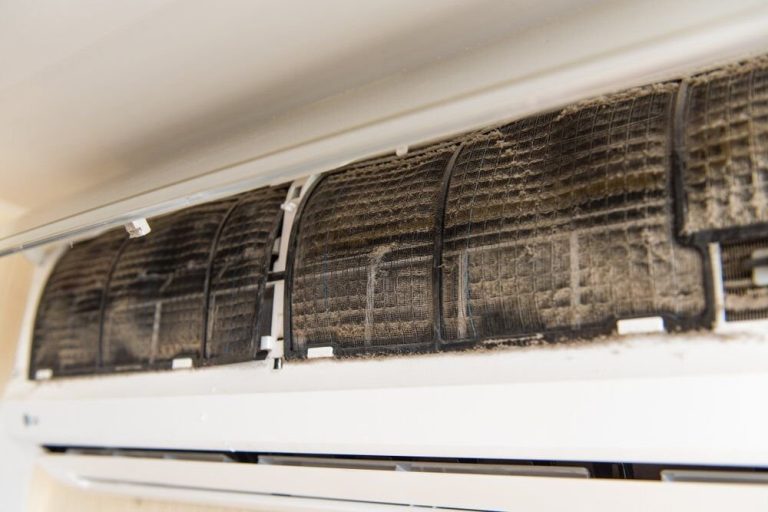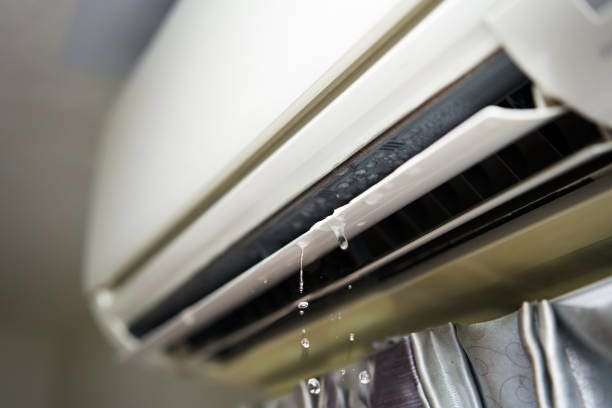Discovering The Importance Of Gfci For Air Conditioners: Do I Need Gfci For Air Conditioner?
Yes, you need a GFCI (Ground Fault Circuit Interrupter) for an air conditioner. GFCIs are necessary to protect against electrical shocks and are required by the National Electrical Code for outlets in certain locations, including outdoor and wet areas. It is important to consult with a licensed electrician to ensure proper installation and compliance with local electrical codes.
Did you know that your air conditioner could pose a hidden electrical danger in your home? While we often associate electrical hazards with appliances like hairdryers or toasters, the truth is that even seemingly innocuous devices like air conditioners can pose a risk. This is where GFCI protection comes in.
GFCI, or Ground Fault Circuit Interrupter, is a crucial safety feature designed to protect you and your home from electrical accidents. It works by quickly shutting off power to the circuit when it detects a ground fault, preventing potentially fatal electrical shocks.
For homeowners or renters who own or use an air conditioner, understanding the need for GFCI protection is essential. Not only does it help prevent accidents and safeguard your loved ones, but it also ensures compliance with electrical codes and regulations. In this article, we will delve into the importance of GFCI protection specifically for air conditioners.
We will explore how GFCI works, why it is necessary for your air conditioner, and the potential risks of neglecting this crucial safety measure. Whether you have a window unit, central AC, or a portable air conditioner, understanding the need for GFCI protection is paramount to maintaining a safe and secure environment in your home. Join us as we unravel the mysteries of GFCI protection for air conditioners and empower you with the knowledge to make informed decisions regarding the safety of your electrical system.
The Basics of GFCI Protection
Before delving into the importance of GFCI protection for air conditioners, let’s first understand the basics of this crucial safety feature.
GFCI, short for Ground Fault Circuit Interrupter, is an electrical device designed to protect against electrical shocks. It constantly monitors the flow of current in a circuit and rapidly shuts off power if it detects any imbalance. This imbalance, known as a ground fault, occurs when electrical current escapes the intended path and finds an alternative route to the ground, posing a potential danger to anyone in contact with the circuit.
GFCI protection is typically required in areas where water and electricity are in close proximity, such as kitchens, bathrooms, and outdoor outlets. However, the need for GFCI protection extends beyond these areas and includes devices like air conditioners.
Why Do You Need GFCI Protection for Your Air Conditioner?
Now that we understand the fundamentals of GFCI, let’s explore why it is essential to have GFCI protection for your air conditioner.
1. Enhanced Electrical Safety
The primary reason to have GFCI protection for your air conditioner is to ensure enhanced electrical safety. Air conditioners have complex electrical systems that can be susceptible to faults, especially in older or poorly maintained units. These faults can lead to ground faults and electrical shocks, putting you and your loved ones at risk.
By installing GFCI protection, you add an extra layer of safety to your air conditioner. The GFCI device constantly monitors the current flow, and if it detects any imbalance, it immediately shuts off the power, preventing potential electrical shocks.
2. Compliance with Electrical Codes and Regulations
Another crucial reason to have GFCI protection for your air conditioner is to comply with electrical codes and regulations. Electrical codes are established to ensure the safety of electrical systems in homes and buildings. They define the minimum requirements and standards for electrical installations, including the use of GFCI protection in specific areas.
While the specific requirements may vary based on your location and the applicable codes, it is common for electrical codes to mandate GFCI protection in areas where water and electricity are in close proximity. This includes kitchens, bathrooms, outdoor outlets, and areas near swimming pools. However, it’s important to note that some jurisdictions may also require GFCI protection for air conditioners, even if they are not located in these specific areas.
3. Protection against Outdoor Hazards
If you have an outdoor air conditioning unit, it is even more crucial to have GFCI protection. Outdoor units are exposed to various environmental factors, such as rain, moisture, and dust, which can increase the risk of electrical faults. Without proper protection, these faults can lead to ground faults and electrical hazards.
GFCI protection for outdoor air conditioners ensures that any ground faults caused by these external factors are detected and the power is promptly shut off, preventing potential electrical accidents.
The Risks of Neglecting GFCI Protection
Now that we understand the importance of GFCI protection for air conditioners, let’s explore the potential risks of neglecting this crucial safety measure.
1. Electrical Shocks
One of the most significant risks of neglecting GFCI protection for your air conditioner is electrical shocks. Without GFCI protection, any ground faults occurring in the air conditioner’s electrical system can go undetected, exposing anyone in contact with the circuit to the risk of electrical shocks.
Electrical shocks can range from mild discomfort to life-threatening injuries, depending on the severity of the fault and the individual’s susceptibility to electrical current. Children, the elderly, and individuals with pre-existing medical conditions may be particularly vulnerable to the effects of electrical shocks.
2. Fire Hazards
Another significant risk of neglecting GFCI protection for your air conditioner is the potential for fire hazards. Faulty electrical systems in air conditioners can lead to overheating, sparking, and electrical fires.
Electrical fires can quickly escalate and cause extensive damage to your home or property. In addition to the physical damage, they can also pose a severe risk to the safety and well-being of individuals inside the building.
Incorporating GFCI Protection for Your Air Conditioner
Now that you recognize the importance of GFCI protection for your air conditioner, you may be wondering how to incorporate it into your electrical system.
1. Consult with a Licensed Electrician
When it comes to electrical installations and modifications, it is always recommended to consult with a licensed electrician. A professional electrician will assess your specific electrical setup and determine the best course of action to incorporate GFCI protection for your air conditioner.
They will ensure that the GFCI device is correctly installed, provide guidance on the appropriate location for the device, and ensure compliance with electrical codes and regulations.
2. Consider GFCI Receptacles or Circuit Breakers
There are two primary options for incorporating GFCI protection for your air conditioner: GFCI receptacles and GFCI circuit breakers.
GFCI receptacles are outlets with built-in GFCI protection. They can be installed in the existing electrical outlets that power your air conditioner. GFCI circuit breakers, on the other hand, are installed in the electrical panel and provide GFCI protection for the entire circuit.
The choice between GFCI receptacles and circuit breakers depends on your specific electrical setup and preferences. Consulting with a licensed electrician will help you determine the most suitable option for your air conditioner.
Ensuring GFCI protection for your air conditioner is essential for maintaining the safety and well-being of your home and loved ones. By incorporating GFCI protection, you enhance electrical safety, comply with electrical codes and regulations, and protect against potential hazards.
Remember to consult with a licensed electrician for proper installation and guidance on the best approach for your specific situation. Taking the necessary steps to incorporate GFCI protection will provide peace of mind and help you create a safe environment for enjoying the comfort of your air conditioner.
Mini-Split, Ductless AC Unit, Electrical Wiring Codes
Frequently Asked Questions (FAQ)
Do I need a GFCI for my air conditioner?
What is a GFCI?
Can I use a regular outlet for my air conditioner?
Where should I install the GFCI for my air conditioner?
Do I need an electrician to install a GFCI for my air conditioner?
Conclusion: The Importance of GFCI Protection for Air Conditioners
In conclusion, GFCI protection is crucial for air conditioners to ensure enhanced electrical safety, compliance with electrical codes and regulations, and protection against outdoor hazards. By constantly monitoring the flow of current and rapidly shutting off power in case of any imbalance, GFCI devices prevent potential electrical shocks and accidents.
Neglecting GFCI protection can lead to electrical shocks and fire hazards, posing risks to individuals and property. To incorporate GFCI protection for your air conditioner, it is advisable to consult with a licensed electrician who will assess your electrical setup and determine the best approach.
GFCI receptacles or circuit breakers can be installed to provide the necessary protection. GFCI receptacles are outlets with built-in GFCI protection that can be installed in existing electrical outlets, while GFCI circuit breakers are installed in the electrical panel and protect the entire circuit. Choosing the suitable option depends on the specific electrical setup and preferences.
Incorporating GFCI protection for your air conditioner is essential for maintaining a safe environment for you and your loved ones. It ensures electrical safety, complies with codes and regulations, and protects against potential hazards. By taking the necessary steps to install GFCI protection, you can enjoy the comfort of your air conditioner without compromising on safety.






